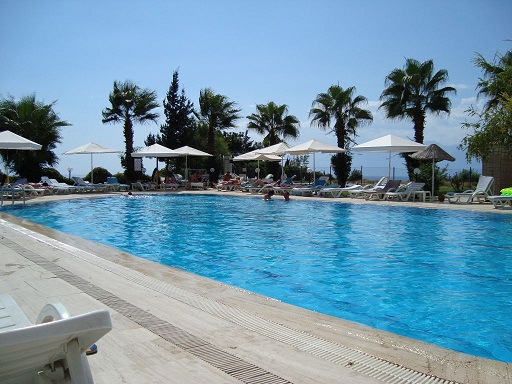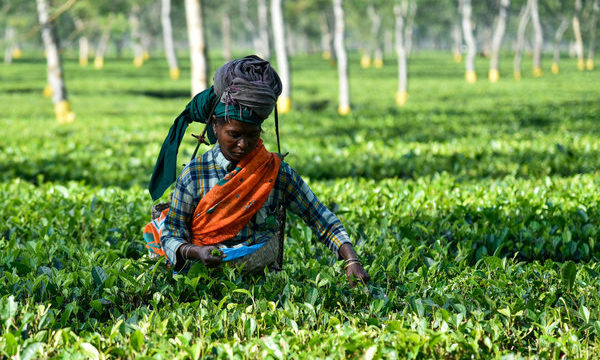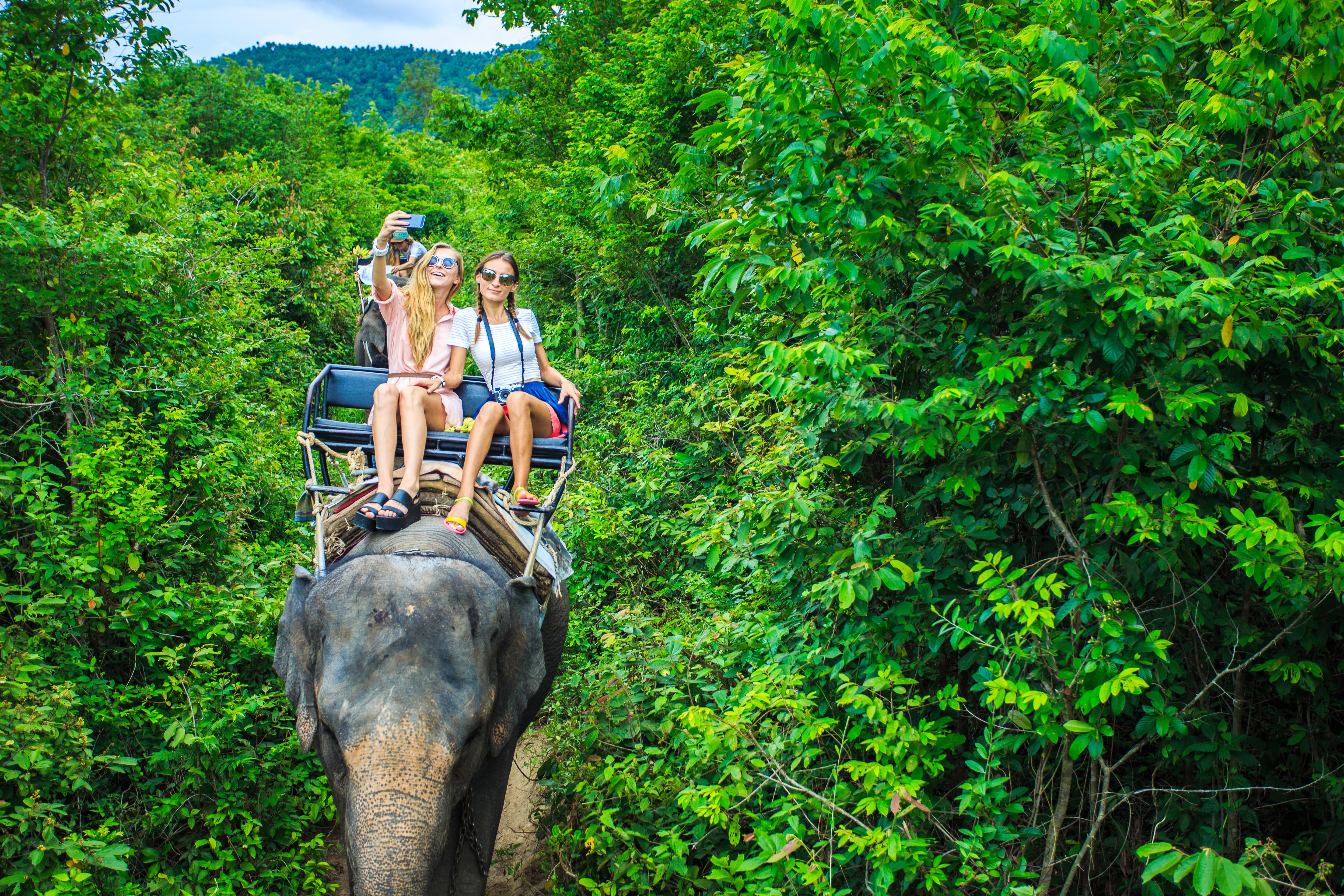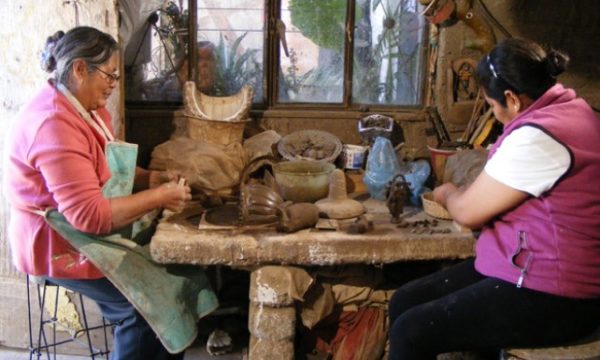As my colleague Vera Barbosa said in her blog last week, here at CABI HQ in the UK we have been experiencing our wettest spring and early summer on record. Not surprisingly therefore, when going on holiday many of those who are able like to jet off to parts of the world where we can count on warm, dry weather which we don’t get to enjoy at home at the moment. But influxes of tourists demanding frequent showers, swimming pools, lush gardens and maybe even nice green golf courses put huge pressure on water resources in these dryer destinations, and it can be local communities who lose out when wealthy tourism businesses demand secure water supplies. The issue is highlighted today by pressure group Tourism Concern, which has launched a campaign for ‘Water Equity in Tourism’ with the release today of a report which uses case studies to highlight how disproportionate use of fresh water by tourists can create problems for local communities in developing countries.
Tourism Concern says that poorly regulated tourism and weak water governance are undermining access to water and sanitation for many people in the global South, and that this inequity is leading to social conflict, while hampering the tourism sector’s contribution to wider sustainable development.
The report released today explores these issues through five case studies from Bali, The Gambia, Zanzibar, and Goa and Kerala in Southern India. It offers 9 Principles of Water Equity in Tourism, plus recommendations for governments, the tourism industry and civil society.
"While hotels may have the money and resources to ensure their guests enjoy several showers a day, swimming pools, a round of golf, and lush landscaped gardens, neighbouring households, small businesses and agricultural producers can regularly endure severe water scarcity," says the report.
In the resort villages of Kiwengwa and Nungwi in Zanzibar, Tourism Concern's researchers found that, on average, tourists were using 16 times more fresh water a day per head than locals. The researchers found that locals used, on average, 93.2 litres of water per day, whereas in the five-star hotels the average daily consumption per room was 3,195 litres. In less luxurious tourist "guesthouses", the consumption rate fell to 686 litres per day. The report also suggests that sewage from hotels may be polluting groundwater.
In Goa, India, Sheela Gracias, a local activist and legal advocate, told Tourism Concern: "The hotels here all have lush lawns and boreholes. But there is contamination of groundwater and the huge consumption of water by hotels lowers the water table.
Wells in the neighbouring village have already become saline and unfit for human consumption. These hotels don't benefit us in any way."
In The Gambia it is claimed that “because the hotel pipes are wider in diameter than those servicing neighbouring communities, they effectively siphon off the bulk of the water, apparently causing availability for residents to drop.” In Bali, the report says that many hotels are ignoring regulations requiring permits and meters for wells, and that widespread unmonitored extraction of groundwater is leading to its depletion. In Kerala, the report highlights pollution caused by around 1000 tourism houseboats at Alleppey.
"Governments need to provide and enforce clear regulatory frameworks for tourism and water management that puts the water rights of communities first," says Rachel Noble, Tourism Concern's head of policy and research. "If governments are serious about using tourism as a means to alleviate poverty and to support sustainable development, marginalised groups and communities, particularly women who usually bear the greatest burden of fetching water, must be empowered to participate in water and tourism decision-making processes." Noble added: "It's time for the tourism sector to take responsibility for its water use and address the wider impacts of its consumption beyond the hotel walls."
Nikki White, head of destinations and sustainability at the Association of British Travel Agents (ABTA), said: "The equitable use of water for both local people and the tourist industry is a key concern for ABTA and our members. We will consider carefully the recommendations made by Tourism Concern and where appropriate, how best to help progress their recommendations where action has not already been taken."
The literature on tourism and water use is covered by CAB Abstracts, and highlighted in the Leisure Tourism Database. A few references are given below, after a link to the Tourism Concern report.
Water Equity in Tourism – A Human Right, A Global Responsibility (PDF file)
Related literature
A market-based proposal for encouraging water use efficiency in a tourism-based economy. Cashman, A.; Moore, W.; International Journal of Hospitality Management, 2012, 31, 1, pp 286-294, many ref. [DOI: 10.1016/j.ijhm.2011.05.007]
Water use efficiency in the hotel sector of Barbados. Charara, N.; Cashman, A.; Bonnell, R.; Gehr, R.; Journal of Sustainable Tourism, 2011, 19, 2, pp 231-245, 24 ref. [DOI 10.1080/09669582.2010.502577]
No water, no future. Goodwin, H.; International Centre for Responsible Tourism, Leeds Metropolitan University, Leeds, UK, ICRT Occasional Paper, 2007, OP9, pp 39 ., 50 ref. [ICRT Occasional Papers]
Tourism and water use: supply, demand, and security. An international review. Gössling, S.; Peeters, P.; Hall, C. M.; Ceron, J. P.; Dubois, G.; Lehmann, L. V.; Scott, D.; Tourism Management, 2012, 33, 1, pp 1-15, many ref. [DOI: 10.1016/j.tourman.2011.03.015]
Water conflicts among different user groups in South Bali, Indonesia. Strauss, S.; Jha, N.; Schoenfelder, J. W.; Human Ecology, 2011, 39, 1, pp 69-79, 35 ref. [DOI 10.1007/s10745-011-9381-3]
Hotel water consumption at a seasonal mass tourist destination. The case of the island of Mallorca. Tortella, B. D.; Tirado, D.; Journal of Environmental Management, 2011, 92, 10, pp 2568-2579, many ref. [DOI 10.1016/j.jenvman.2011.05.024]
Related News & Blogs
From too many to too few: the impact of COVID-19 on overtourism
A few months ago 2020 was predicted to be a record-breaking year for tourism, continuing the apparently unending pattern of annual growth recorded since the tourism industry began collecting data on numbers of people travelling. Even allowing for the f…
2 June 2020





